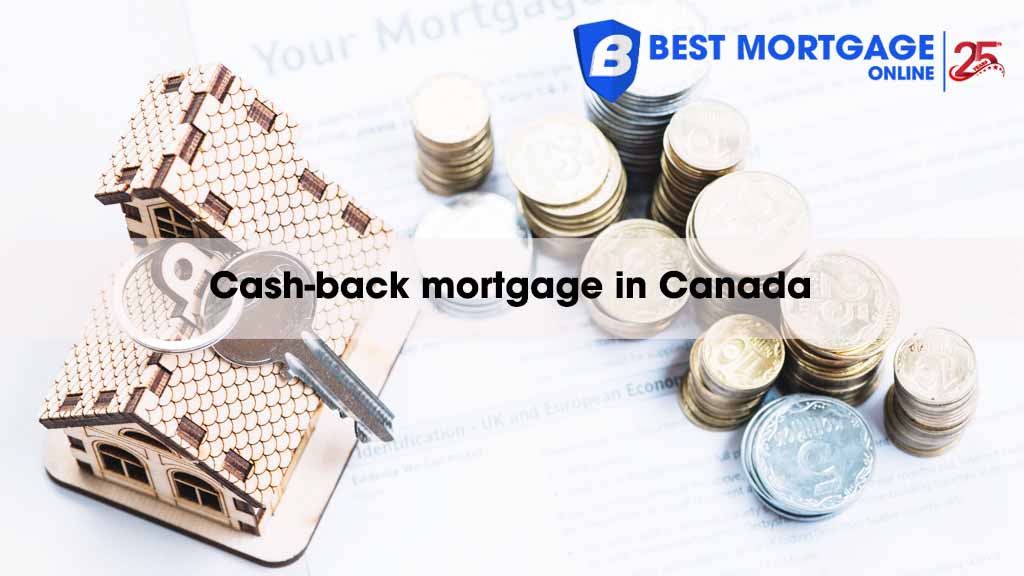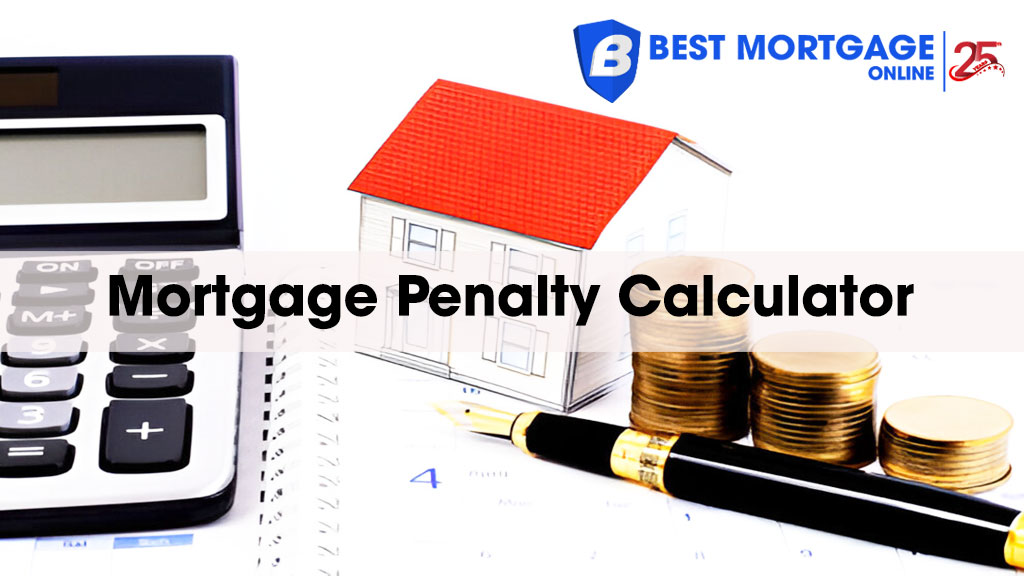When you are buying a home in Canada, unexpected costs can quickly add up. From lawyer fees to moving expenses, these surprise bills can strain your budget just when you need money most. That’s where a cash back mortgage comes in to offer you extra funds right when your home purchase closes.
But before you jump at the promise of instant cash, it is important to understand exactly what you are signing up for and whether it makes financial sense for your situation.
What is a cash back mortgage?
A cash back mortgage is a lump sum of money you receive when your home purchase completes. This payment ranges from 1% to 7% of your total mortgage amount and is deposited into your bank account immediately after closing. Besides its conveniences, you will pay a higher interest rate on your entire mortgage balance, not just on the cash you receive.
When getting this mortgage, you can spend the money to pay for:
- Closing costs: Cash back can help cover legal fees, land transfer taxes, and other closing expenses. However, you must demonstrate you have sufficient funds before mortgage funding, as the cash back is only released after closing.
- Home renovations: Many homebuyers use cash back for immediate renovations or repairs. This provides access to funds without applying for additional loans or using high-interest credit cards.
- Debt consolidation: The lump sum can pay off high-interest debts, though the funds go directly to your real estate lawyer, who disburses them according to the lender’s instructions.
- Emergency fund: First-time homebuyers often use cash back as an emergency fund for unexpected home-related expenses.
How does a cash back mortgage work in Canada?
Cash back mortgages work by offering borrowers an upfront payment in exchange for accepting a higher interest rate on their entire mortgage balance. Canadian banks structure these mortgages this way to recoup the money they advance to you upfront.
The process starts when you apply with your chosen lender, providing your financial documents. When selecting your mortgage terms, you will choose how much cash back you want.
Once your lawyer completes the home purchase, the lender deposits the cash into your account. From that point forward, you will make regular mortgage payments at the higher interest rate you agreed to.
If you break your mortgage before the term ends, you will need to repay some or all of that cash back. However, each lender has different rules about this clawback provision. So, it is better to explore the cost of breaking the mortgage.
For example, you are buying a $600,000 home with a 20% down payment. Your mortgage would be $480,000. If you select 3% cash back, you would receive $14,400 when the purchase closes. However, instead of paying perhaps 4.5% interest on a regular mortgage, you might pay 5.5% or more on the cash back version.
How to get cashback on mortgage payments
To qualify for a cash back mortgage, you will need:
- A good credit score (650 or higher)
- Steady employment income
- The required down payment from your own savings
- A mortgage amount meeting the lender’s minimum
Canadian banks offer 2 main types of mortgages with cash back:
True cash back mortgages build the cash into your mortgage product. You will work with lenders who offer these as standard products. The amount depends on your mortgage size and the percentage you choose.
Promotional cash offers work differently. Banks run limited-time promotions offering fixed dollar amounts to attract new customers. These often require you to set up automatic payments from a checking account with that bank.
The process of getting a cash back mortgage is similar to the traditional one. Ensure you meet all the requirements and gather the necessary documents.
Remember, you cannot use the cash back toward your down payment since it only arrives after closing. You will need to prove you have the down payment funds separately. Some lenders also restrict what you can do with the money or require you to maintain other products with them. So, always read the fine print before committing.

Is a cash back mortgage worth it?
To know whether the cash back for mortgage is ideal for you or not, you need to weigh its pros and cons.
4 Advantages of the cash back for mortgage are:
- Immediate access to tax-free funds
- Lower interest rates than credit cards or personal loans
- Flexibility in spending the cash
- Single mortgage payment simplicity
However, the downsides are significant. 4 drawbacks of the getting cash back mortgage are:
- Higher overall interest costs than traditional mortgages, resulting in larger mortgage debt
- Clawback provisions if you break your mortgage early
- Stricter qualification requirements
In short, while cash back mortgages offer immediate benefits, it’s essential to consider the higher overall costs and potential pitfalls. Ensure you evaluate your individual financial situation before deciding.
Who provides the best cash back mortgage offers in Canada?
Major Canadian banks compete actively in this space, each with different terms:
RBC leads with up to 7% cash back, though they cap it at $20,000. They offer the most flexibility in term lengths (1-10 years) but require prorated repayment if you break early.
Scotiabank provides up to 5% with no published maximum amount. However, they demand full cash back repayment if you leave before the mortgage term ends, making them less flexible than RBC.
BMO, TD, and CIBC focus more on promotional offers – fixed amounts up to $4,100 based on mortgage size. These typically require 3+ year terms and maintaining checking accounts with them.
National Bank offers up to $3,000 for mortgages over $750,000, targeting the higher-end market.
Beyond the big banks, credit unions and alternative lenders sometimes offer competitive cash back options. Working with a mortgage broker can help you access these less-advertised deals.
Alternatives to cash back mortgages in Canada
Before committing to higher rates, explore 5 options:
Home equity line of credit (HELOC) becomes available after you have built some equity. While you can not access it immediately at purchase, it provides flexible borrowing at lower rates than credit cards once established.
RRSP Home Buyers’ Plan lets first-time buyers withdraw up to $60,000 tax-free from retirement savings. You will repay it over 15 years, but there is no interest charged.
A line of credit might offer lower rates than the premium you will pay on a cash back mortgage, especially if you have good credit and only need funds temporarily.
Delaying purchases sounds simple, but it works. Can you live without new furniture for six months while you save? Sometimes patience beats paying thousands in extra interest.
Negotiating with sellers to cover closing costs or include appliances might reduce your immediate cash needs without increasing long-term costs.
FAQs about a mortgage with cash back
Can I use cash back for my down payment?
No. The cash arrives after closing, so you need the down payment from other sources. Lenders verify this before approving your mortgage.
Is the cash back taxable?
No. The Canada Revenue Agency does not consider mortgage cash back as taxable income.
What if I sell my house before the mortgage term ends?
You will repay some or all cash back received, depending on your lender's terms and how much time remains.
Can I get cash back when renewing my mortgage?
Some lenders offer cash back on renewals, though amounts are usually smaller than for new purchases.
Do all mortgage types qualify for cash back?
Most cash back offers apply only to fixed-rate, closed mortgages. Variable or open mortgages rarely qualify.
The bottom line
To sum up, cash back mortgages are not free money. You are borrowing from your future self at premium rates.
For buyers facing essential expenses with no cheaper alternatives, the trade-off might make sense. That could include necessary repairs, professional moving costs, or consolidating truly high-interest debt. For everyone else, the extra interest paid over your mortgage term exceeds the cash received upfront.
So, before choosing a cash back mortgage, calculate the true cost difference, explore all alternatives, and be honest about whether you genuinely need immediate funds or simply want them. Your future self will thank you for making the right choice today.




